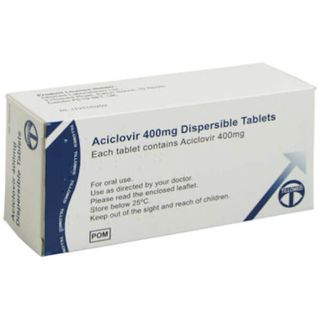
Genital Herpes
A flare-up of genital herpes is never nice, and if it’s your first experience of the virus, it can be a little scary. The sexually transmitted infection causes small, fluid-filled blisters to appear on and around your genitals and anus. These painful blisters cause stinging and burning sensations and can be pretty uncomfortable. Unfortunately, once you’ve caught this highly infectious virus, it’s with you for life and you’re likely to have recurrent episodes over the years. Taking regular pain relief will help you manage your symptoms, but if that doesn’t do the trick, our team can prescribe tablets to help your body keep the virus at bay.
Genital Herpes Treatments
 Aciclovir 400mg Tabletsfrom£19.99
Aciclovir 400mg Tabletsfrom£19.99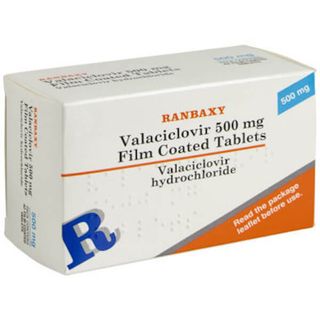
Valaciclovir 500mg Tablets
Valaciclovir 500mg Tablets£25.00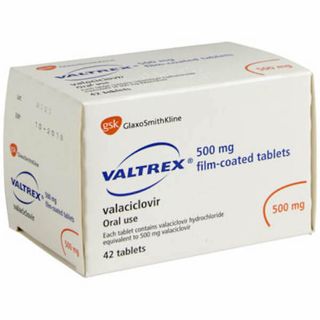
Valtrex 500mg Tablets
Valtrex 500mg Tablets£49.00- Out Of Stock
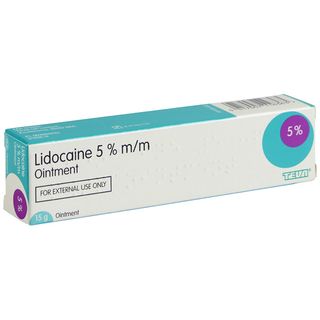
Lidocaine 5% Ointment
Lidocaine 5% Ointment£14.99 - Out Of Stock
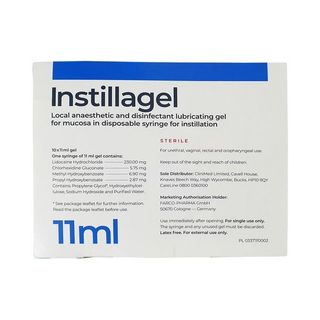
Instillagel Pre-filled Syringes
Instillagel Pre-filled Syringes
Start your assessment for Genital Herpes
Don't wait to get the medical help you need.
Once you complete a short online assessment about your condition, you will be able to select your preferred treatment and quantity from a list of appropriate options for you.
Reviewed by our UK-based medical team
Takes less than 3 minutes to complete
Approved treatments dispatched same day (before 3pm)
Ordering as easy as 1, 2, 3
1. Find the ideal treatment
We can provide over 1096 leading medicines to treat over 90 conditions.
2. Get a free consultation
Our qualified healthcare professionals will assess your condition and needs.
3. Enjoy speedy delivery
And when the time comes to re-order, it'll only take a couple of clicks.
Advice for Genital Herpes
About Genital Herpes
Genital herpes is a common infection that can be passed from person to person via intimate sexual contact. It is caused by the herpes simplex virus (HSV type 1 and type 2). Most people will catch it at least once in their lifetime, although the majority of infected people won’t even realise they have it:
- One in five people will not present with any symptoms
- Three in five people will only suffer mild symptoms and are unlikely to be diagnosed
- Only one in every five people will present with obvious symptoms and will require a diagnosis
The herpes virus (HSV 1 & 2) can infect any mucus membrane in the body. When it affects the mouth it produces cold sores. When it affects the genitals it can cause genital herpes; painful blisters and ulcers on and around the genital area. The viruses that cause genital herpes are relatively harmless and will not affect fertility or future health.
Genital herpes is a chronic condition. After the initial infection, the virus will remain in the body, where it can periodically reactivate and cause another outbreak of symptoms. On average the rate of recurrence is between four to five times in the first two years following initial infection. Over time the rate of recurrence becomes less frequent with the symptoms becoming less severe.
What are the symptoms of Genital Herpes?
The majority of people infected with the genital herpes (herpes simplex virus 1 & 2) will experience very mild symptoms, if any at all. Many won’t even realise they have the condition. If symptoms do present it can be months or sometimes even years before they develop. However, most people who suffer symptoms will usually experience them between four to seven days after having been exposed to HSV. The symptoms are usually more severe during your first bout of genital herpes.
The symptoms of genital herpes can include:
- Painful red blisters. These blisters can burst to leave open sores around the genitals and surrounding area.
- For women, blisters and ulcers can appear on the cervix and they can experience a discharge from the vagina.
- Pain when passing urine.
- A high temperature or fever with associated aches and pains and a general feelings of being unwell.
These symptoms can last up to twenty days with the sores eventually scabbing over and healing. After the initial breakout has cleared up, the HSV virus will remain dormant in the body. This virus can reactivate periodically, causing future outbreaks. The symptoms of a recurrent outbreak of genital herpes will typically include:
- Tingling, burning or itching sensation around the genitals. This sensation will occur before the appearance of blisters.
- Painful red blisters that are prone to bursting, leaving open sores around the genitals, rectum, thighs and buttocks.
- For women, ulcers and blisters can appear in the lower part of the womb (cervix).
Recurrent bouts of genital herpes are typically less severe and clear up faster. This is due to the antibodies produced after the initial infection. These protective proteins are now able to identify and combat HSV more efficiently.
How is Genital Herpes diagnosed?
You should always have the primary (first) infection of genital herpes diagnosed by a healthcare professional. If you develop any symptoms of genital herpes it is important to seek medical attention as soon as possible. This is because the infection is much easier to diagnose when it’s still active. If the HSV has reverted to a dormant state then the laboratory analysis may come back as negative, meaning a conclusive diagnosis will not be possible until you suffer a recurrent outbreak.
Your doctor or sexual health specialist may ask:
- If this is the first time you have experienced these symptoms
- If you have ever suffered from cold sores (also caused by the herpes virus)
- If you have ever had a sexually transmitted infection (STI)
- About your history of sexual partners
For a conclusive diagnosis, a swab will be used to collect a sample of fluid from one of the blisters. This sample will then be sent to a laboratory for analysis. The laboratory will be able to identify the presence of the herpes simplex virus.
Recurrent outbreaks of genital herpes can then be self-diagnosed and treated as long as the symptoms remain the same and the outbreaks do not get worse.
What treatments are available for Genital Herpes?
The treatment for genital herpes varies between an initial outbreak (primary infection) and a recurrent attack. If you are suffering from a primary infection of genital herpes then it is likely you will be prescribed an antiviral medication, for example, Aciclovir 400mg tablets.
Aciclovir works by preventing the herpes simplex virus from multiplying. Aciclovir, and other antivirals, are unable to completely eradicate the infection from the body. The dose of Aciclovir when treating genital herpes is typically one 400mg tablet, five times a day after your initial outbreak. You will need to take Aciclovir for at least five days or longer depending on whether new blisters are still forming when you start treatment. For subsequent outbreaks of genital herpes, you only need to take one Aciclovir 400mg tablet, three times a day for five days. Other antiviral medications used to treat genital herpes include Valaciclovir, which works in a similar way to Aciclovir.
Lidocaine 5% ointment is an anaesthetic ointment used to know the area of genital herpes to relieve the pain and irritation of blistering during the outbreak. It does not treat the infection itself, however, it helps to relieve the symptoms whilst the outbreak clears on its own.
Recurrent outbreaks may require a course of Aciclovir however, if your symptoms are mild, you may wish to use some self-help techniques to ease the symptoms. These can include:
- Using salt water to clean the affected area can help prevent blisters and ulcers from becoming infected as well as encouraging them to heal more rapidly
- Drinking plenty of fluid. This will help dilute the urine, making it less painful to pass
- Avoid wearing clothing that is tight fitting as this may irritate the ulcers and blisters
- Use an ice pack wrapped in a flannel to help soothe the pain and speed up the healing process
- Apply petroleum jelly (Vaseline) to any blisters or ulcers to help reduce the pain when passing urine
How can I prevent Genital Herpes?
By following the advice below you can help reduce the risk of developing genital herpes:
- Avoid sexual contact: If suffering from genital herpes it is recommended to avoid sexual contact with others until the blisters or sores around the genital area have completely healed. If you feel the tingle or itch of an oncoming bout of genital herpes then it is best not to have sex as during this period as the infection is highly contagious.
- Avoid sharing sex toys as they can transmit sexual transmitted diseases, such as genital herpes. If you do share them, ensure the toy is washed or a fresh condom placed over the top between users.
- Wear a condom: condoms can help protect against sexually transmitted diseases and can help prevent genital herpes from spreading. However, if genital herpes is present on and around the anus then using a condom will not provide protection against spreading the infection through sexual contact.
Alternatives
Some Non-Prescription Alternatives for treating a Genital Herpes outbreak include;
- Cleaning the area with water or salt water to promote healing
- Avoid wearing tight clothing
- Use pain relief such as paracetamol
- Try to avoid your known outbreak triggers such as excess alcohol.
- Use Vaseline on the blisters to promote healing and relieve pain.
Genital Herpes FAQs
At first, many people with the herpes simplex virus will not experience symptoms. There can be a gap of months or even years between the initial infection and the first appearance of symptoms. As such, many people are unaware that they have the condition.
If symptoms do appear following the initial infection, they most often become visible between four and seven days following the exposure to the virus. Symptoms of a primary infection tend to be more severe than for a recurrence.
Symptoms of a primary genital herpes infection include:
- Small blisters, which burst to leave open red sores around the genitalia, rectum, buttocks and upper thighs
- Ulcers or blisters on the cervix
- Vaginal discharge
- Pain while urinating
- Flu-like symptoms, including aches and pains
Any of these symptoms can last up to 20 days. When the sores do scab and heal, they will do so without scarring.
When these initial symptoms clear, HSV will remain dormant (inactive) in a local nerve. It may occasionally reactivate, returning to the skin to cause a recurrent outbreak.
Symptoms of these recurrences may include:
- Tingling, burning or itching sensations in the affected areas, in advance of the reappearance of blisters
- Recurrence of red blisters, leaving sores around the genitalia, rectum, buttocks and upper thighs
- Recurrence of cervical blisters and ulcers for women
Frequently, these recurrent outbreaks will be shorter and less severe, because the body will have produced protective antibodies in response to the primary infection. The body now has the appropriate proteins to fight the infection more effectively. Going forward, further recurrences should appear less frequently and be less severe.
HSV can spread in many ways:
- By direct contact with the affected area during sex. This does not require penetrative (vaginal or anal) sex; infection can spread just from close genital contact.
- By contact with the skin if, during sex, skin on which the virus is active is unprotected by a condom or by a latex or polyurethane square.
- When receiving oral sex from a partner with a cold sore. This can occur even if the partner’s symptoms have not yet appeared.
- When touched in the genital, vaginal or anal area by a partner with herpes on the finger or hand.
- By sharing sex toys.
Herpes is most frequently spread either right before, during, or just after an outbreak or recurrence. HSV can be both caught and spread by both men and women. However, it cannot be acquired from baths or swimming pools, from hugging, or from sharing towels, drinks or cutlery.
Genital herpes is a common infection typified by blisters on the genitals and nearby areas. It is caused by the herpes simplex virus (HSV). The herpes virus can impact any mucous membrane on the body; this includes the moist lining of the mouth, where HSV manifests as cold sores.
Genital herpes is most often transmitted through sexual contact, and so is commonly classified as a sexually transmitted infection (STI). Like many STIs, HSV is highly contagious, and can be spread by any direct contact with the affected areas.
Two types of HSV exist, type 1 (HSV-1) and type 2 (HSV-2). Genital herpes is caused both by type 1 and by type 2 HSV.
The factors that cause recurrences of herpes are not fully understood. However, there are various triggers that may cause HSV to reactivate. These can include:
- Friction in affected areas during sexual intercourse
- Being generally unwell
- Stress
- Excessive use of alcohol
- Exposure to ultraviolet light (e.g. sunbeds)
- Surgery on the genital area
- A weakened immune system (e.g. from chemotherapy)
Genital herpes is most often treated with antiviral medication, such as aciclovir and valaciclovir. A local anaesthetic, lidocaine ointment, can also be used on the affected skin.
Upon experiencing genital herpes symptoms for the first time, talk to your GP or visit a local GUM clinic, also known as a sexual health clinic. They will likely prescribe medication such as aciclovir, an antiviral tablet which you will be required to take five times daily. This dose must be continued for at least five days. If new blisters and sores are forming when treatment begins, the prescription will be for a longer period of time. Importantly, aciclovir does not eliminate the virus from the body; it simply prevents it from multiplying.
Possible side effects of aciclovir include nausea and headaches. Your prescription may be for another similar antiviral medication, such as famciclovir or valaciclovir.
With more severe symptoms, antiviral tablets such as aciclovir will again be prescribed. The dosage will be the same as for a primary infection: five times daily for at least five days. Other recommendations include:
- Wash the affected area with plain or salt water. Keeping blisters and sores clean will help prevent them from becoming infected, and may assist in healing.
- Apply something cool and wet to the affected areas, such as an ice pack wrapped in a hand towel. This will help reduce pain and accelerate healing. Ice should never be applied directly to the skin.
- Apply an anesthetic cream (e.g. 5% lidocaine) or a petroleum jelly (e.g. Vaseline) to blisters and sores. This will make passing urine less painful.
- Drink sufficient fluids to dilute urine, in order to reduce pain. Urinating whilst sitting down in a bath or whilst pouring cool water over the genitals may also ease the pain.
If you experience fewer than six recurrences within a year, a GP will likely prescribe episodic treatment. This entails a five-day course of aciclovir each time tingling or numbness occurs, before the full symptoms begin.
Long-term treatment plans for genital herpes involve taking aciclovir every day. This should occur only if you experience more than six recurrences within a year, or if the symptoms are especially distressing or severe.
This is called a suppressive treatment. Its aim is to prevent further outbreaks from developing. Importantly, this treatment can only reduce the chance of HSV being spread to a partner; it cannot prevent infection altogether.
A suppressive treatment will often involve taking aciclovir twice per day for up to twelve months. After this period, aciclovir will only be taken as needed, in episodic treatments. At this stage, outbreaks should be infrequent and mild. If severe outbreaks recur in future, suppressive treatment can be restarted.
Recurrent outbreaks of herpes can occur due to a weakened immune system. This can be an indicator of other viruses, such as HIV. So, if frequent recurrences continue, consider also being tested for HIV.
It is strongly advised to refrain from any sexual activity (i.e. oral, vaginal or anal sex) if there are any indications that an outbreak will soon occur if any symptoms are present, and for one week after all symptoms have gone. This is necessary to prevent the infection from being spread to a partner. Sexual activity whilst having blisters or sores can also delay their healing.
You should seek immediate medical attention following symptoms of a primary infection because herpes is most easily and accurately diagnosed whilst the infection is active.
A doctor or nurse will often diagnose genital herpes by examining the afflicted areas of skin. If possible, they will take a sample of fluid from the affected area, and send it to a laboratory to confirm the presence of HSV. This confirmation will most often take 1-2 weeks. A negative sample does not guarantee the absence of HSV. A full diagnosis will need to be confirmed by future recurrent outbreaks.
This process may include screening for other STIs. If you test positive for an STI, recent sexual partners will also need to be tested. They may require treatment to prevent further spreading of the infection. GUM clinic staff will suggest which of your previous partners require testing.
Genital herpes is especially common in young people aged 20 to 24.
In England in 2013, over 32,000 people were diagnosed with a primary infection of genital herpes at sexual health clinics.
Whilst no cure exists for genital herpes, symptoms can often be managed with antiviral medication. It remains important to contain the spread of HSV by abstaining from sexual activity until all sores have cleared. For added prevention, condom use should continue even after symptoms have cleared.
HSV can cause complications during pregnancy. It can sometimes be conferred to the child near the time of birth.
The risk to the baby is low if the primary infection occurred before the pregnancy. This is because mothers pass protective antibodies to the baby during the final few months of gestation. As a result, the baby will be protected both during birth and for the subsequent months.
Even if genital herpes recurs during the course of the pregnancy, the risk to the baby remains low. As a precaution, aciclovir may be prescribed from week 36 until birth, in order to reduce the extent of symptoms.
The chance of passing on HSV to the baby rises to three per cent if genital blisters and sores are present at the time of birth.
Aciclovir has been approved for use while breastfeeding by the American Academy of Pediatrics. It is present in breast milk, but the amount ingested by the baby is low and safe. Indeed, aciclovir is commonly given to newborns and rarely causes problems.
On average, genital herpes will recur four to five times in the two years following the primary infection. Symptoms, however, will gradually become less severe, and outbreaks will occur less frequently.
Nystatin is a prescription medication so it is not available to buy over the counter. You will need to complete a consultation with a medical professional before you can get a prescription for nystatin.
Guides for Genital Herpes
Aciclovir Side Effects: Everything You Need To Know Before Using The Genital Herpes Treatment
Genital Herpes vs Genital Warts
What Is Aciclovir Used For? Your Guide To The Antiviral Treatment
Aciclovir Dosage: What Dose Should You Be Taking?
Aciclovir Tablets And Alcohol: Can You Drink On Aciclovir?
How Can You Get Genital Herpes
We've written 8
more guides
for Genital Herpes
We also offer health & advice tailored to you.


